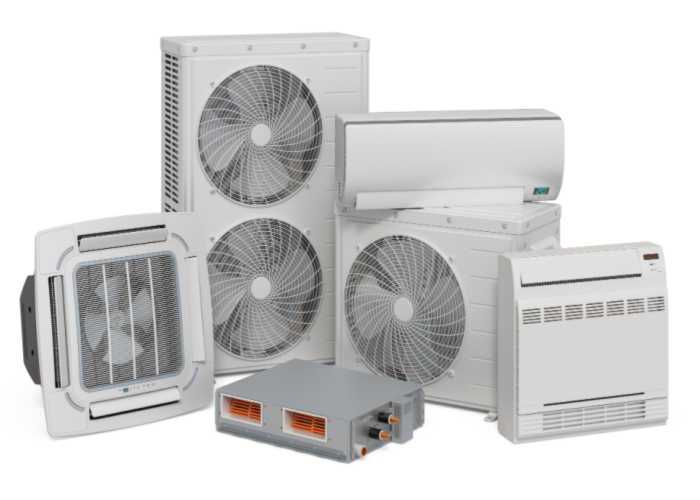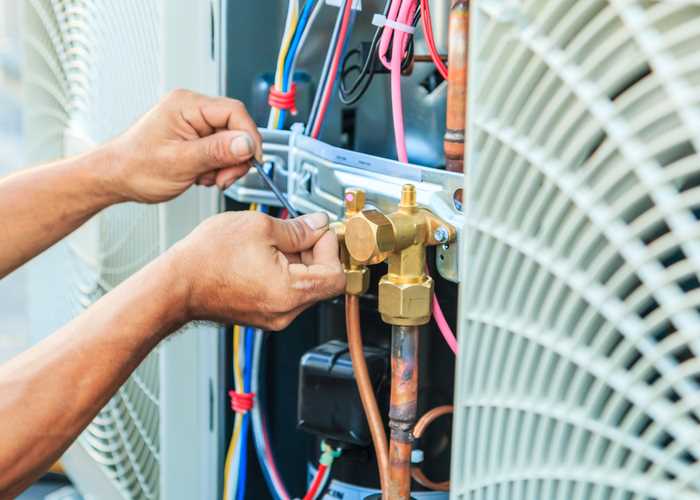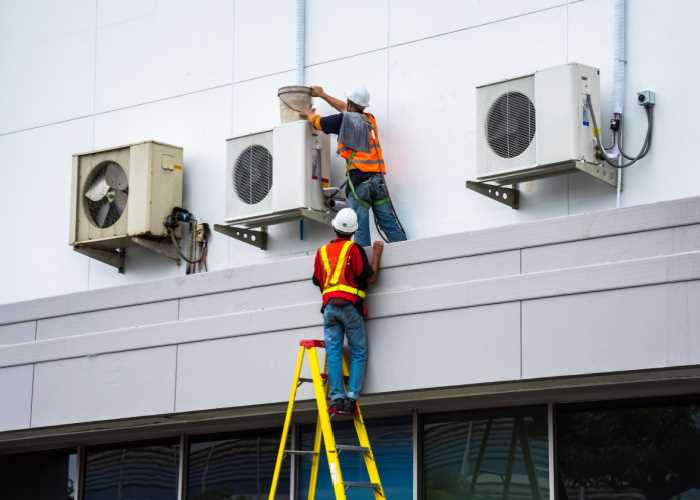When selecting an air conditioning system for a commercial property, it's crucial to consider factors such as the size of your business space, the number of occupants, and the nature of your business activities.
An experienced HVAC professional can perform a load calculation to determine the cooling capacity required. This calculation considers insulation, windows, and even the direction your building faces to ensure the system you choose can effectively cool your space without overworking or wasting energy.
Energy efficiency should also be a priority, as it impacts long-term costs - look for systems with high SEER (Seasonal Energy Efficiency Ratio) ratings.
Finally, assess your budget and maintenance capabilities, as some systems might have higher upfront costs but lower operating expenses. Consider the total cost of ownership, including installation, maintenance and potential repair costs when making your decision.

Commercial and home AC units differ in several ways.
Commercial systems are designed to cool larger areas, often with multiple zones and advanced control options. These systems are sturdier and more robust to handle extended operation. They can also be customised to meet specific cooling requirements of businesses, ensuring comfort for both customers and employees.
In contrast, home AC systems are built for smaller spaces and are typically simpler in design. They’re optimised for residential settings, where cooling needs are generally less intensive compared to commercial spaces. Home AC systems prioritise ease of use and cost effectiveness for homeowners.
Central, multi-split, and Variable Refrigerant Flow (VRF) systems are all viable choices for commercial applications - the best option depends on the unique requirements of your space.
Central systems are efficient for cooling large, open spaces as they distribute cool air through ducts. They offer a consistent temperature throughout the building, making them suitable for offices and retail environments.
Multi-split systems are ideal when you need to cool different zones independently, as each indoor unit can be controlled separately to provide customised comfort.
Meanwhile, VRF systems offer exceptional zoning and temperature control. Heat Recovery VRF in particular is well suited to large spaces with varying temperature needs - providing both heating and cooling functionality.
These systems transfer excess heat from cooled spaces to areas that need warmth. This innovative approach enhances AC efficiency and can reduce energy consumption by as much as 30% when applied to a large commercial space.
Consider the layout and function of your business area to determine which type aligns better with your requirements. An HVAC professional can help you choose the most suitable system based on your needs and the characteristics of your space.
Accurately sizing an AC system involves a detailed cooling load calculation. This calculation considers the building's square footage, insulation quality, number and direction of windows, heat loads produced by equipment, and occupancy levels.
An HVAC professional uses industry-standard formulas and software to determine the cooling capacity required to maintain a comfortable indoor environment.
Oversized or undersized systems can lead to inefficiency, high humidity, premature equipment failure and discomfort, making this step crucial for optimal performance.

This all depends on the complexity of your system and how it’s used. Some commercial air conditioners require a yearly service, whilst others will benefit from being serviced twice a year - ideally before the cooling and heating seasons.
You should also be aware that systems containing fluorinated gases (F-Gases) must be leak checked by a qualified professional at regular intervals. How often depends on the type and amount of refrigerant used. You’ll find more information on this in our post: What You Need to Know About F Gas Leak Testing.
As well as leak testing, regular maintenance involves cleaning or replacing filters, checking refrigerant levels, inspecting electrical components, and ensuring proper airflow. This routine upkeep not only enhances system efficiency and longevity but also helps identify and address potential issues before they become major problems.
Consider investing in a Planned Preventative Maintenance contract to ensure timely and consistent servicing. These contracts offer scheduled maintenance visits by professionals, which can save you money in the long run by preventing costly breakdowns and maximising the system's lifespan.
With proper care, the lifespan of a commercial AC system typically ranges from 15 to 20 years.
Regular maintenance, timely repairs, and quality installations contribute to a longer operating life. However, factors like usage intensity, environmental conditions, and adherence to maintenance schedules can influence how long the system remains effective.
Central HVAC systems are prevalent in large commercial buildings due to their efficiency in cooling expansive areas.
These systems comprise a central cooling unit that distributes conditioned air through ducts and vents. They're well-suited for office buildings, shopping centres, and other sizable spaces. However, the choice also depends on factors like the building's layout, insulation, and ventilation needs.
Renowned brands such as Daikin, Mitsubishi Electric, Fujitsu and Toshiba are often recommended for commercial applications.
These brands offer a range of products with advanced features, energy efficiency, and durability.
When selecting a brand, consider factors like the specific needs of your business, the available budget, and the reputation of the manufacturer. Consulting with HVAC professionals can help you make an informed decision.

The installation time for a commercial AC unit varies based on factors such as the complexity of the system, building size, and existing infrastructure.
A simple setup may take a matter of days, whereas a more complex project might take several weeks
Once the AC unit is installed, HVAC commissioning follows. This phase involves a comprehensive examination of the system's components and functionality. A qualified engineer will perform tests to validate the system's efficiency, safety, and adherence to design specifications.
This step is critical to identifying any issues early on and ensuring optimal performance.
To find a reliable commercial AC contractor in your area, start with some basic research. Gather up a list of local companies and visit their websites to compare their services, experience, and areas of expertise.
When evaluating contractors, be sure to check their accreditations. Crucially, ensure that both the company and the engineers it employs hold the relevant F-Gas certifications.
Reading reviews from previous clients can also provide insight into the contractor's service quality.
Finally, Schedule consultations with potential contractors to discuss your needs and receive estimates before making a decision.
At Loughborough Air Conditioning, we’ve been working with commercial clients across the East Midlands for over 20 years.
We offer a complete range of temperature control services, from the installation of standard comfort cooling systems to the design of bespoke close control applications.
If you have a question about commercial air conditioning we haven’t answered here - or you’d like to discuss a commercial AC project - we’d be happy to help.
